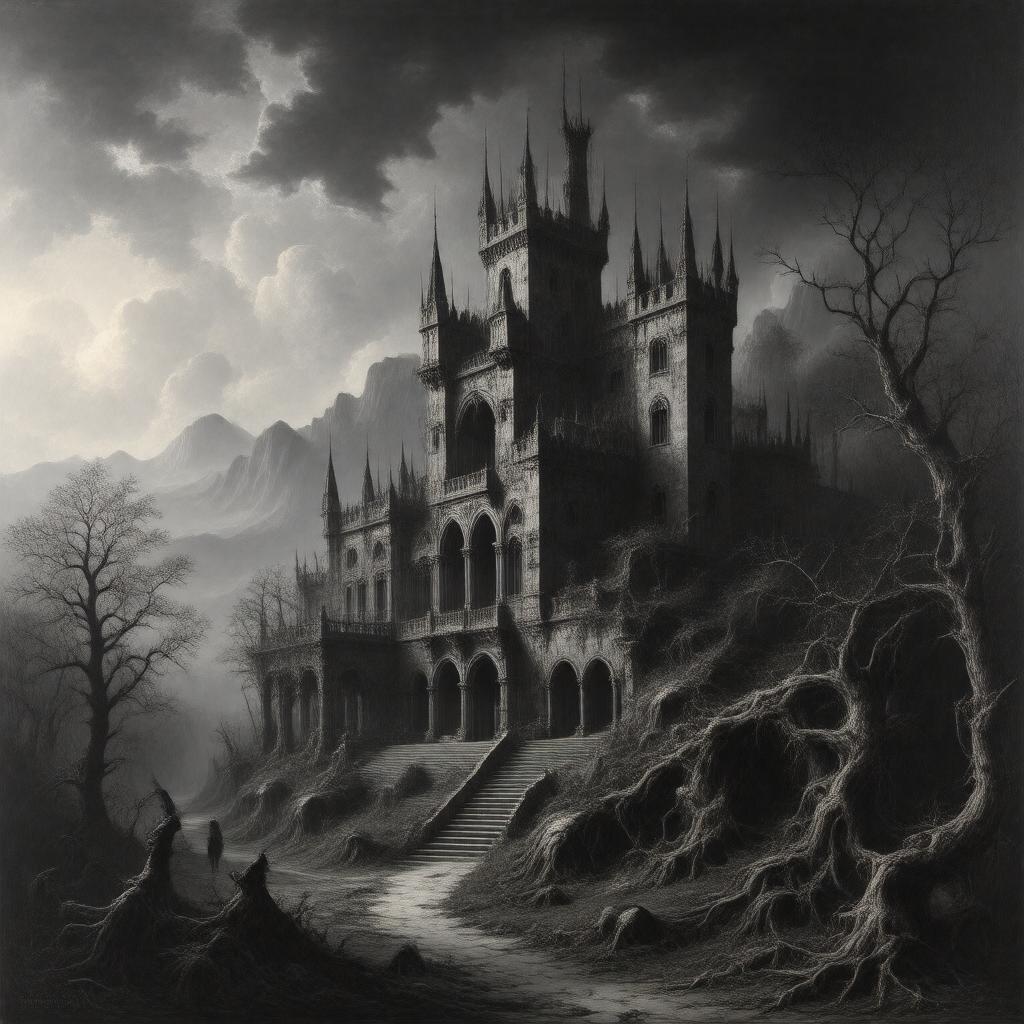Prompt
"Create an image of a dark, eerie, and isolated Italian Renaissance-style castle or villa, possibly with a foreboding forest or twisted trees in the background, representing the setting of The Duchess of Malfi, a Jacobean tragedy by John Webster, with a sense of corruption, power struggles, and impending doom, in a haunting and atmospheric style."

